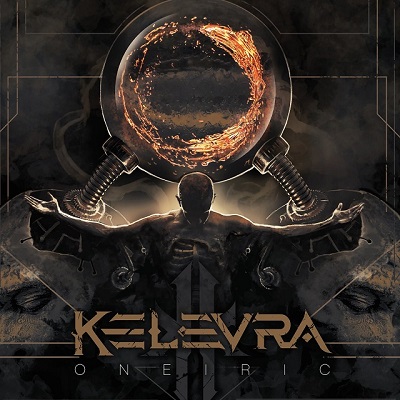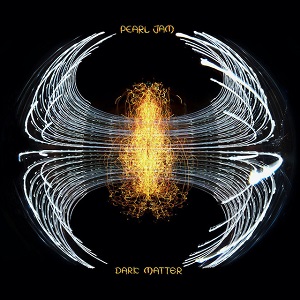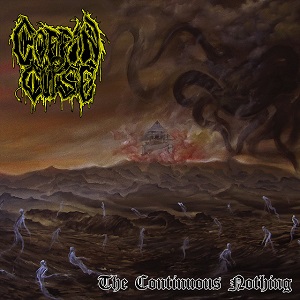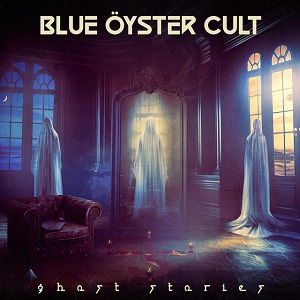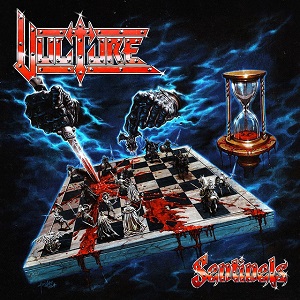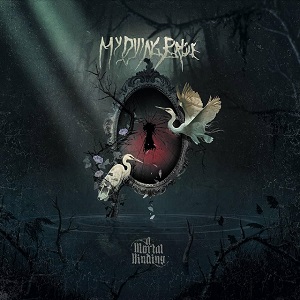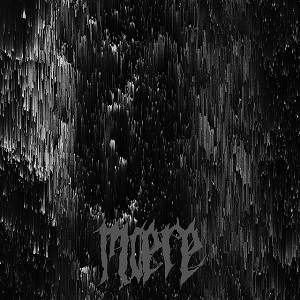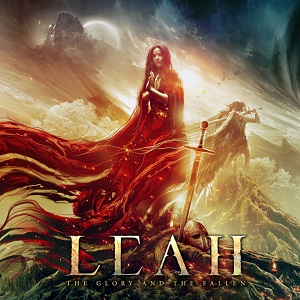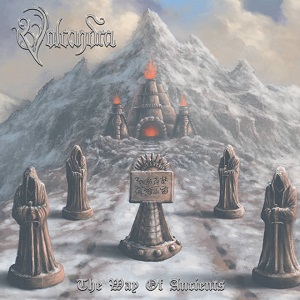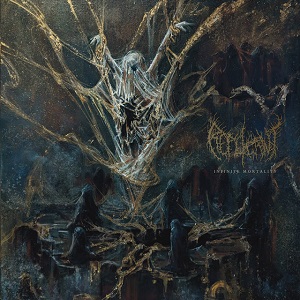JAMES LABRIE - A Second Round Of Static
July 31, 2013, 10 years ago
Bad news for DREAM THEATER fans that were put off by frontman JAMES LABRIE’s 2010 solo album, Static Impulse:
Yep, he did it again. With the same cast of characters backing him up.

You have to have a certain amount of sympathy for the folks that ran for cover when Static Impulse was released, however. It was the highly anticipated follow-up to LaBrie's critically acclaimed Elements Of Persuasion album from 2005, which finally put his solo career on track in the wake of two somewhat confusing MULLMUZZLER records. And yet he'd seemingly chucked the possibility of any future accolades in favour of Swedish death metal-inspired aggression, courtesy of drummer Peter Wildoer (DARKANE) coughing up blastbeats and growls as required. It was an experiment of sorts concocted by LaBrie, long time collaborator/keyboardist Matt Guillory and producer Jens Bogren that took them as far away from Dream Theater's prog metal shadow as possible, and for all the bitching and moaning from some scandalized fans Static Impulse was a success.
The new album, Impermanent Resonance, picks up where Static Impulse left off. The tear-your-head-off aggression of some of the songs has been toned down while the melodic aspects of the music have been turned up, but it's definitely the same creative team behind the metal. And metal it is, with nary a prog-ism to be heard. Just like last time out, the only similarity between this new album and Dream Theater is the guy standing behind the microphone.
BW&BK;: Was it clear from the beginning that Impermanent Resonance was going to follow in Static Impulse's footsteps rather than experimenting with a new musical direction, like you did from going from Elements Of Persuasion to Static Impulse? There are similarities between those records, sure, but Static Impulse ripped the doors off the car you guys built with Elements....
Matt: "I think Elements Of Persuasion was the turning point, or at least a new chapter for us. We'd established ourselves as having a metal foundation within our music so we didn't want to abandon that at all, especially coming off Static Impulse. We defintely wanted to keep that foundation for Impermanent Resonance but take it a step further, especially with the melodies and the hooks in the music. Also, the atmospheric perspective wasn't emphasized on Static Impulse, so we wanted to bring that out on the new record."
BW&BK;: Static Impulse is a more aggressive record in comparison to Impermanent Resonance. In fact, if you were to dump the guitars and change the production on Impermanent Resonance you'd have some great pop songs.
James: "Absolutely, no doubt about it. They're pretty damn pop-ish even as they stand now (laughs) but I get what you're saying. You could come at some of these songs as a piano/vocal rendition, and 'Say You're Still Mine' is pretty much in that vein as it is. I think Matt put some amazing songs together, like 'Back On The Ground' and 'Holding On'. A song like 'Back On The Ground' definitely deserves to be in amongst the songs being played on radio these days, and it stands up against any one of them. For me a song is either song or it's not good, and what's important is what it conveys to me regardless of whether it's a metal song or a pop song or a jazz piece. There are songs on Impermanent Resonance that definitely have that pop sensibility to them."
"Given where Matt and I are coming from, it's safe to say that every album you're going to get from us and this band is going to be diverse. It's not something where you hear the first song and that's what the album is going to sound like from beginning to end. This album starts off ball to the wall with 'Agony', but when you hear 'Holding On' or 'Lost In The Fire' you get a completely different impression of what the whole thing is going to sound like."
BW&BK;: What changed between Elements Of Persuasion and Static Impulse that sent you off in this more straightforward metal direction?
Matt: "I was in a phase where I was trying to figure out who I was as a songwriter. It took a number of years of developing my craft and really understanding how I connect with music, and in between Elements Of Persuasion and Static Impulse I figured it out. What I connect to in music more than anything else is vocals, therefore when I'm writing I put the most emphasis on the vocals. On a lot of these new songs the vocals were written first and everything else was built up around them in a supportive capacity. I think that approach, at least for me, made me much happier with the results as opposed to writing all the music and sort of imposing vocal melodies over it. I think the songs are better crafted by doing the vocal melodies first."
James: "I think that's what really gives and has provided this band with its sound and identity. Matt's approach to the music really is a major reason why the album sounds the way it does. The songs prove it's a method that works for us. Matt produced Impermanent Resonance, and he's the one that drives this thing musically. Jens Bogren mixed this album and the last one, and he's absolutely brilliant. He's responsible for creating the sound that we have on the last two albums, and I think that in itself really grabbed the attention of whoever happens to listen to this music."
BW&BK;: If you hadn't continued with the Static Impulse direction on the new record - for example, if you'd gone back to the more progressive nature of the two Mullmuzzler records - I think a lot of James LaBrie fans would have been disappointed even though your catalogue is rather diverse overall.
James: "You can't come off sounding forced, and you can't jump on a particular bandwagon just to see what you can do. The music has to be sincere, the integrity always has to be apparent. Matt and I have always loved the more aggressive approach to music, and it's always been a part of who and what we are and the way that we express ourselves. As Matt said, Elements Of Persuasion is when the gears shifted and I think we became more aware of who we were and what we were trying to do together musically with the other guys. Consistency and continuity has to be a part of your sound or you just sound confused, and the listener loses interest."
BW&BK;: It isn't accurate calling this a solo album, is it? Second record in with Peter Wildoer, Marco Sfogli (guitars) and Ray Riendeau (bass), having the "James LaBrie" name slapped on the cover is good marketing more than anything.
James: "That's all it's ever been. Is it fair to call it a band or a solo thing? It's always been a band. It's just a name known around the world and it helps sell albums. It helps bring somebody in that wouldn't necessarily take the time to listen because of that familiarity. It's always been our vision, me and Matt, to create this. It's our band; Peter, Ray and Marco are integral to the end result and our continued efforts to make this bigger and better each time out. It could easily be called the Matt Guillory Band because it's not about me. The picture is much bigger and much broader than that."
BW&BK;: Both of you are labelled as progressive artists because of your work outside this band and the Mullmuzzler albums, but it's fair to say that could change if this new album get the exposure you're hoping for.
Matt: "To be honest with you, I don't listen to progressive music. It's been many, many years since I've listened to anything that people would call progressive. I listen to metal and pop music; those are the two genres that I listen to the most. I'll be listening to In Flames one minute and Katy Parry the next (laughs). It's important for us to have a clear distinction between what we're doing and what James is doing in Dream Theater. There would be absolutely no point in us continuing this musical venture if there was no distinction at all."
James: "The truth of the matter is that with Matt being the main composer, that's what has helped establish that this band has its own identity. It would make sense no me to be working and writing with somebody if the end result would sound like Dream Theater. What's the point in me doing this if it's going to sound like an extension of where Dream Theater happens to be doing? The beauty of this is that I've been thrown into a completely different musical arena. As Matt said, melodies are first and foremost in this music, and for me to walk into that is amazing. The day this starts to sound like Dream Theater, that's the day when we can turn to each other and say 'It's not working,' but that's not going to happen. This band is the antithesis of Dream Theater, and I think that's what makes this so viable and so attractive."


